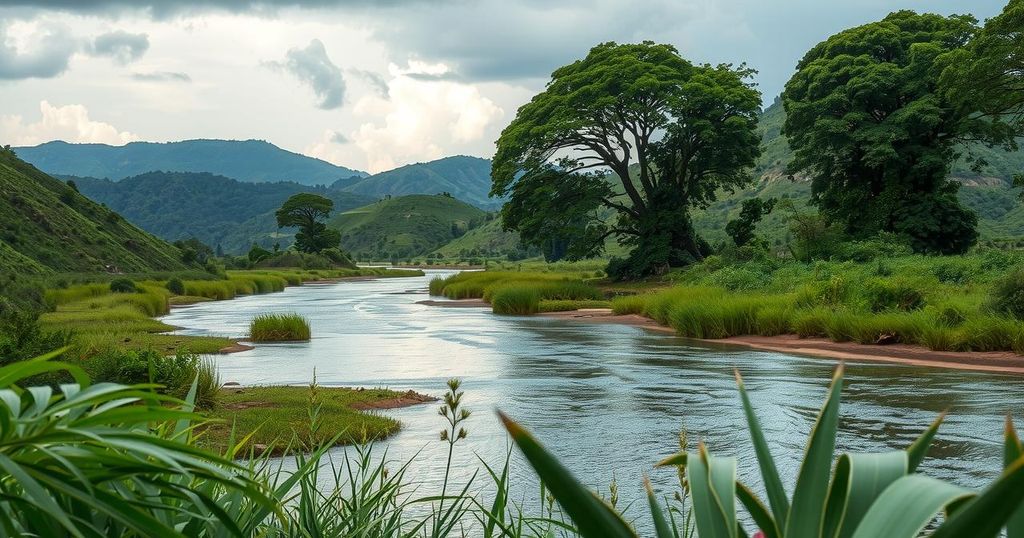Mozambique faces a humanitarian crisis following Cyclones Chido and Dikeledi, which have affected over 737,000 people. The storms brought severe winds and rainfall, impacting multiple provinces, primarily Cabo Delgado and Nampula. There is a heightened need for recovery resources, with US$7,991,000 required to assist an additional 362,000 people, emphasizing the importance of preparedness for future weather events.
As of January 30, 2025, Cyclones Chido and Dikeledi have severely impacted Mozambique, affecting over 737,000 individuals. Significant rainfall and winds accompanied the storms, particularly Cyclone Chido which made landfall on December 15, 2024, near Pemba. This cyclone registered wind speeds of up to 80 kilometers per hour and led to rain exceeding 250 mm within 24 hours. Cyclone Dikeledi followed shortly after, impacting over 283,000 people in Nampula, further complicating recovery efforts in the region.
The two cyclones have intensified the humanitarian crisis, particularly in Cabo Delgado and Nampula, where 272,832 and 175,169 individuals were affected, respectively. Many residents were already vulnerable due to previous conflicts that displaced large populations. The dual impacts of these cyclones have not only heightened the existing hardships but have also underscored the urgent need for enhanced preparedness measures ahead of the peak cyclone season, which typically runs from November to March.
The current situation delineates an urgent request, with US$7,991,000 necessary to assist an additional 362,000 individuals. To date, interventions from the United Nations High Commissioner for Refugees (UNHCR) have reached 30,000 people, yet the needs continue to grow as recovery efforts evolve. The confluence of climate change and ongoing conflict presents a formidable obstacle for humanitarian assistance in Mozambique. It is imperative to address these challenges to support recovery and resilience within the affected communities.
Mozambique is prone to severe weather events, particularly during its rainy season from November to March. Cyclone Chido, a Category 4 storm, and Cyclone Dikeledi have compounded existing challenges, with vulnerable populations facing increased risks due to their exposure to both natural disasters and social upheaval. The government’s response has been hindered by the dual crises of climate emergencies and internal displacement, necessitating urgent assistance and well-coordinated relief efforts to mitigate the situation’s impacts.
The cyclones have significantly exacerbated the humanitarian crisis in Mozambique, affecting over 737,000 individuals in vulnerable communities. The need for financial resources and continued preparedness is critical as further cyclones loom on the horizon. With a focus on resilience and recovery, effective interventions must be implemented to support those impacted by both climate change and ongoing conflict wounds.
Original Source: reliefweb.int




